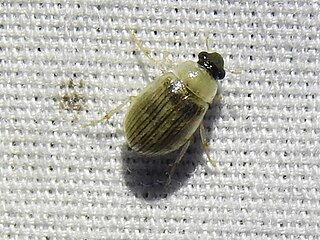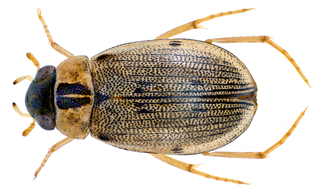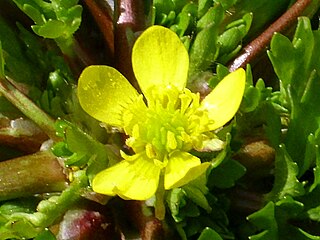
Berosus is a lunar impact crater that is located in the northeast part of the Moon, less than one crater diameter northwest of Hahn. Further to the east-northeast is the large crater Gauss, and to the north-northwest lies Bernoulli. Because of its location, this crater appears foreshortened when viewed from the Earth.

Bayamo is the capital city of the Granma Province of Cuba and one of the largest cities in the Oriente region.

Cuban–Chinese relations are the interstate relations between the People's Republic of China and Republic of Cuba. The origins of the relations began when the Qing dynasty established a consulate in Havana while Cuba was a still a colony of Spain in 1879. In 1902, the Qing dynasty recognized the independence of the Republic of Cuba from the United States, which had taken it from Spain in 1898. Cuba recognized the PRC in September 1960.

Isopogon trilobus, commonly known as barrel coneflower, is a species of flowering plant in the family Proteaceae and is endemic to South Coast Western Australia. It is a shrub with wedge-shaped leaves with lobed or toothed margins, and oval, spherical or barrel-shaped heads of cream-coloured to yellow flowers.

As of June 2024, the State of Israel is recognized as a sovereign state by 164 of the 192 member states of the United Nations. The State of Israel was formally established by the Israeli Declaration of Independence on 14 May 1948, and was admitted to the United Nations (UN) as a full member state on 11 May 1949. It also maintains bilateral ties with all of the Permanent Five. 28 member states have either never recognized Israel or have withdrawn their recognition; others have severed diplomatic relations without explicitly withdrawing their recognition. Additionally, many non-recognizing countries have challenged Israel's existence—predominantly those in the Muslim world—due to significant animosity stemming from the Israeli–Palestinian conflict and the Arab–Israeli conflict.

Berosus is a genus of beetles in the family Hydrophilidae, the water scavenger beetles. The genus contains 273 species. It is distributed worldwide.
Berosus chevrolati is a species of hydrophilid beetles from Cuba.

Berosus exiguus is a species of water scavenger beetles found in the United States, the Bahamas, and Cuba. These beetles are small, ranging from 2.0 to 3.5 mm in length. They can be identified by their small size, yellowish-brown head, distinctly impressed elytral striae (stripes), and often faint spots on the elytra.

Berosus infuscatus is a species of hydrophilid beetle from the United States, Mexico and Cuba.
Berosus interstitialis is a species of hydrophilid beetles from the Bahamas, Haiti, Guadeloupe, the U.S. Virgin Islands, Puerto Rico and Cuba.

Berosus metalliceps is a species of hydrophilid beetles from the United States, Mexico, the Bahamas and Cuba.

Berosus peregrinus is a species of hydrophilid beetles from Canada, the United States and Cuba.
Berosus quadridens is a species of hydrophilid beetles from Mexico, Guatemala, Nicaragua, Costa Rica and Cuba. It was previously considered a synonym of Berosus truncatipennis.
Berosus undatus is a species of hydrophilid beetles from the United States, Mexico, the Lesser Antilles and Cuba.

Berosus aculeatus is a species of hydrophilid beetle native to the United States and Cuba. It was originally described by John Lawrence LeConte in 1855 and is characterized by prolonged apices of its elytra.

Diceratias trilobus is a species of deep sea marine ray-finned fish belonging to the family Diceratiidae, the double anglers. The fish is bathypelagic and has been found as deep as 1,216 metres (3,990 ft). It is endemic to the northwest Pacific Ocean.
Ada Ferrer is a Cuban-American historian. She is Julius Silver Professor of History and Latin American Studies at New York University, and will join the faculty at Princeton University as the Dayton-Stockton Professor of History in July of 2024. She was awarded the 2022 Pulitzer Prize in History for her book Cuba: An American History.

Corybas trilobus is a species of terrestrial orchid endemic to New Zealand. It is part of the C. trilobus aggregate, whose members are characterized by a funnel or dish-shaped labellum and an often heart or kidney-shaped solitary leaf.

Berosus pulchellus, is a species of water scavenger beetle found in Oriental, Australasian, Afrotropical and Palaearctic regional countries such as India, Sri Lanka, Hong Kong, Japan, Iran, Cambodia and Australia.

Ranunculus trilobus, the threelobe buttercup, is a species of annual herb in the family Ranunculaceae.














